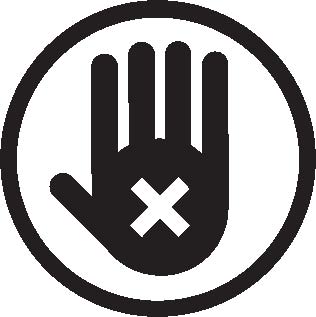
A dispatch from a place we haven’t quite got to yet:
A newsfeed running in one corner of his display served up a fresh riot from Hongcouver. State-of-the-art security systems gave their lives in defense of glassy spires and luxury enclaves—defeated not by clever hacks or superior technology, but by the sheer weight of flesh against their muzzles. The weapons died of exhaustion, disappeared beneath a tide of live bodies scrambling over dead ones. The crowd breached the gates as he watched, screaming in triumph. Thirty thousand voices in superposition: a keening sea, its collective voice somehow devoid of any humanity. It sounded almost mechanical. It sounded like the wind.
—βehemoth
A whole week later, and most of the world seems to have moved on. We’re frogs, after all; take the stimulus out of our immediate perceptual sphere and we’ll forget it ever existed. But suppose we were mammals? Suppose we were capable of adding two and two, of learning from experience. What take-home messages would we have distilled from the G20 festivities?
For one thing, we might conclude that the best way to avoid an altercation with the police would be to start smashing windows and trashing cars; Yonge Street was rampant with random acts of vandalism last Saturday, and myriad cops just stood around watching. On the other hand, if you were looking for a truncheon across the spine your best strategy might be to sit down in the street and start singing “Oh Canada”; our brave Boys in Blue didn’t seem to have any trouble at all rushing those troublemakers from behind. Other strategies included penning in peaceful protesters with rows of shield-whacking riot cops, ordering them to disperse, and then refusing to let them leave (one of these incidents happened about two blocks from where I live); refusing to recognize the press credentials of the journalists you arrested on, well, no charge anyone admits to now; or just beating on random bystanders for no good reason.
They tried to put a couple of kinds of topspin on the aftermath. At first they took the line that “property can be replaced but lives can’t”, so their strategy was to simply let the protestors “wear themselves out” against the storefront windows (and presumably against those abandoned police cars set alight, curiously bereft—one might even say stripped-down—of the computer hardware that normally festoons the dashboards of such vehicles). When that didn’t jibe with proliferating footage of unarmed civilians getting the ol’ snatch-and-grab or a boot to the head, they told us that evildoing anarchists had doffed their black costumes and were blending in with the regular folks; what choice did the police have but to attack folks who looked regular, just to be on the safe side?
A cynic might suspect that the truth was a whole lot simpler: behind the truncheons and the tear gas and the riot helmets lurked cowardly chickenshits who didn’t want to risk going up against someone armed with so much as a brick pried from the street. Someone who might actually fight back when attacked. Going after unarmed protestors sitting on the pavement is so much safer.
Police Chief Bill Blair didn’t just admit to lying about sweeping and draconian laws that don’t actually exist; he bragged about it, with a smirk on his face. Countless citizens—demonstrators, journalists, joggers, grocery shoppers for fuck’s sake—were told that they would be arrested if they didn’t submit to searches on the street, if they didn’t hand over their papers on demand. Most submitted; many were arrested anyway, on whatever flimsy pretext the badges could sift from their illegal searches. If you happened to have a pen-knife keychain in your pocket you were guilty of possessing a “weapon of opportunity”. If you happened to have a filtermask in your backpack—you know, those disposable things painters and pest control folks wear to protect their respiratory tracts from fumes and smog and solvents—you were attempting to “disguise” yourself. (One woman arrested on that pretext had a filtermask because she was an artist—who did freelance work for the Toronto PD.) I’m given to understand that one dude was hassled because he was coming back from a soccer game carrying a vuvuzela1; it could have been used, he was told, as a “call to violence”. (Of course, he was told this before he identified himself as a crown attorney. For some reason he was not among the nine hundred ultimately arrested.2)
The take-home message from these reports and images might be: if we didn’t want to mow those armed and helmeted stormtroopers down before, we sure as shit do now. When the people charged with upholding the law lie to the citizenry about what that law even is; when they give “lawful commands” to disperse and then prevent anyone from dispersing; when they detain, search, arrest, and attack jes’-plain-folks for no better reason than that the Cylons look like us now—maybe we’ve passed the point at which we should be letting these thugs and bullies stomp all over us. Maybe we should start stomping back.
It’s an easy reaction to have, given the evidence of our own eyes, the smug admissions of the authorities themselves. It’s hard not to feel the blood boil. The problem with fighting back, of course, was articulated very eloquently by a dude posting under the name AngusM3 following my rant about the BP spill: every act of violence on the part of us little people can be used to justify “increased repression in the name of ‘security’. The attackers can be painted as ‘extremists’ and ‘fanatics’, while the state presents itself as the guardian of ‘peace’ and ‘stability’. Terrorist attacks strengthen rather than weaken despots.”
I don’t think there’s any denying the truth of AngusM’s argument. It bears pointing out, though, that it really isn’t an argument against the use of violence at all. It is an argument for violence—or rather, an argument that highlights the unparalleled effectiveness of violence as a means of getting your own way. When the state cracks down, after all, it doesn’t do it with daisies and fluffy kittens; it cracks down with guns and gas and snipers. The problem is not that violence doesn’t work; it’s that it works too damn well, and the other side has cornered the market. No matter how many guns any individual might stockpile, next to the state we are as naked as newborns.
But if violence plays into the hands of the repressors, nonviolence does exactly the same thing. I don’t think we have in this country any realistic possibility of bringing about real change by working within the political process, simply because it’s impossible to mount a political campaign without corporate sponsorship. You can’t get elected without getting your message out; you can’t get your message out without backing from wealthy benefactors; potential benefactors got wealthy in the first place because the status quo works just fine for them, thank you very much, and they’re not about to throw their support behind any candidate who’s likely to force them to clean up the messes they make.4 In fact, they will do everything within their power to ensure that such candidates never rise to power. Hell, look at Obama down in the US; potentially the most radically innovative president in generations, and in terms of his performance on matters of civil rights and governmental transparency you’d be hard-pressed to tell him from Dubya.
Bureaucratic and political organisms are like any other kind; they exist primarily to perpetuate themselves at the expense of other systems. You cannot convince such an organism to act against its own short-term interests. So we seem to have a situation in which working for change within the system is futile; rising up against the system (even non-violently) provokes greater repression from the state; and protest itself is only permitted if it is ineffectual and if (in the case of the recent summits) none of the targets of discontent are ever even line-of-sight to the discontented.
It’s not really news, but we seem to be living in a soft dictatorship. The only choices we’re allowed to make are those which make no real difference.
But there is one possibility that might give some cause for hope; the chance that deep down, as strange as it may seem, they are more afraid of us than we are of them. The chance that ironically, it might have been that very fear that made them rub the G20 in our faces, even when other sites would have so much less disruptive. The chance that disruption of the little people was, to some extent, the whole point of the exercise.
They didn’t just have to show us who was boss, you see. They had to convince themselves.
For once, this isn’t an offering from my own fevered paranoid little brain. I’m cadging it from a dude called Geoff Dow (aka Edifice Rex)5. His intriguing conclusion about the choice of locale for the G20 summit is that, consciously or unconsciously—but nonetheless, deliberately—it was “designed not so much to cow the nation’s citizens . . . but to comfort our so-called leaders”.
His reasoning makes a scary kind of sense. Surely by now, the world’s leaders have seen the portents: the collapsing infrastructure, the financial meltdowns, the countless environmental disasters which—absurdly and against all their cherished beliefs—are actually wreaking economic havoc already, long before they’re safely dead and the next generation is left to foot the bill. If their conscious minds haven’t yet acknowledged the smell of rising sewage, their brain stems at least must be serving up some diffuse sense of dread as they lie in the dark each night between their zillion-thread sheets. On some level, consciously or not, they know that something is seriously wrong here, and—consciously or not—they’re scared shitless.
Dow again:
. . . Stephen Harper deliberately “made a bloody mess” of downtown Toronto not only because he could, but because doing so made him feel strong; exercising the power to order 19,000 armed men and women is a form of magical thinking which he “and his buddies” feel will translate into the power to order about the economy and the weather.
Consciously or not, Toronto was turned into an armed camp, because our ‘leaders’ foresee a time when brute force will be all they have to hold on to the reins of their illusory power.
I don’t know if I’m convinced by this. It credits the G20 leaders (or at least their brain stems) with a degree of insight I’m not sure is especially common amongst that crowd. But it’s a plausible model at least, given the data; maybe these people really did built the Bastille in downtown Toronto last week.
Maybe what we witnessed was—on some subconscious level, at least—a dress rehearsal for the Revolution.
1 An offence deserving of incarceration, granted.
2 Neither were any members of the so-called Black Bloc, as far as I’ve heard. But by now, who’s counting?
3 https://www.rifters.com/crawl/?p=1372#comment-25156
4 To be honest, the majority of the population is also unlikely to vote for a candidate who tells them to stop living beyond their means, grow the fuck up, and rein in their standard of living to something a bit more sustainable.
5 http://ed-rex.livejournal.com/201222.html
